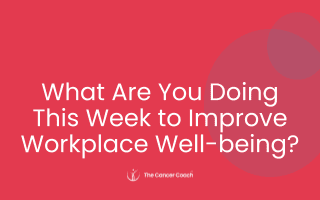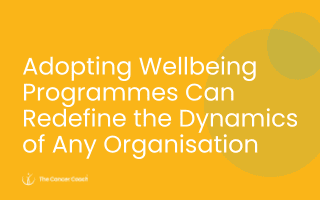In a transformative move, the McKinsey Health Institute’s 2023 survey spanning 30 countries delves into the dynamics of holistic health, encompassing physical, mental, social, and spiritual well-being. Authored by Jacqueline Brassey, Brad Herbig, Barbara Jeffery, and Drew Ungerman, the survey looks at how organisations can shape workplaces that prioritise the comprehensive health of their workforce. Here we take a look at the survey:
Embracing Holistic Health
The survey unveils a shift towards a holistic perspective on health, recognizing the interconnectedness of physical, mental, social, and spiritual facets. Positive work experiences emerged as a catalyst for enhanced holistic health, leading to increased innovation and improved job performance.
Recognizing Variances and Patterns
Surveying over 30,000 employees across diverse demographics, the findings highlighted variations in holistic health across countries and industries. Notably, employees in larger companies and managerial roles reported higher holistic health scores. However, the survey also spotlighted challenges faced by Gen Z and individuals in smaller companies.
Decoding Workplace Demands and Enablers
The research introduced the concepts of demands and enablers—workplace factors influencing sustained effort and positive energy, respectively. While demands predicted burnout symptoms, enablers, such as meaningful work and psychological safety, significantly influenced holistic health. The model emphasised the need for a dual approach, addressing both demands and enablers for a balanced impact.
Bridging the Gap: Opportunities for Improvement
Classifying employees into categories like “faring well,” “stretching,” “managing,” and “drowning,” the survey illustrated the interplay between holistic health and burnout symptoms. This segmentation highlighted an “opportunity gap,” indicating the percentage of employees that could benefit from interventions targeting both demands and enablers simultaneously.
Driving Action at Multiple Levels
The research underlined the multi-dimensional nature of influencing employee health, calling for interventions at organisational, team, job, and individual levels. Initiatives such as job redesign, team dynamics improvement, and fostering a sense of meaning in work were identified as key drivers to enhance holistic health.
Shaping the Future: A Strategic Imperative
The survey concluded by positioning employee health as a strategic imperative for organisations. Acknowledging the financial implications of employee well-being, the authors urged executives to view health as a key component of environmental, social, and governance (ESG) frameworks. The systemic approach recommended encourages organisations to consider health not as a soft metric but as integral to flourishing businesses.
In essence, the McKinsey Health Institute’s survey provides a comprehensive roadmap for organisations to navigate the complexities of employee well-being, fostering environments that prioritise holistic health and drive sustained success.
You can explore the detailed findings in the McKinsey Health Institute Employee Holistic Health Survey.
Enter the Workplace Wellness State of the Market 2023, a roadmap for organisations to navigate the complexities of employee well-being:
Workplace Wellness State of the Market 2023
Our Workplace Wellness State of the Market 2023 report delves into the unprepared reality of cancer in the workplace and outlines strategies to safeguard organisations. This report explores the intersection of workplace wellness and the challenges posed by cancer, offering valuable insights for organisations aiming to prioritise the health of their employees.
Comparative Analysis
While both reports highlight the significance of employee health, our Workplace Wellness State of the Market uniquely focuses on the specific challenges presented by cancer in the workplace. It goes beyond the general aspects covered by the McKinsey report, providing actionable strategies for organisations to navigate the uncharted territory of cancer-related issues within their workforce, with analysis and recommends for:
Workplace wellness providers and employee assistance programmes (EAPs) aiming to incorporate programmes focused on specialised cancer research and measurable outcomes to enhance their current portfolio beyond generic workplace wellness offerings.
Insurance providers who want to empower their customers to achieve better health outcomes and reduce the risk of claimants.
Employers who want to see higher productivity, fewer absences, less burnout, attract and retain their best talent and be an employer of choice when recruiting.
This report contains recommendations to empower individuals within an organisation to lower the risk of cancer and other chronic illnesses. It provides useful advice if someone has recently been diagnosed with cancer; dealing with the emotional and physical effects of cancer treatments; when medical appointments are over; reintegration back into the workforce and guidance for caregivers of loved ones.
How to Safeguard Your Organization
For those eager to explore in-depth insights into the unprepared reality of cancer in the workplace and discover proactive measures for workplace wellness, our comprehensive report is a valuable resource. Access the full Workplace Wellness State of the Market 2023 report here to equip your organisation with the knowledge and strategies needed to foster a resilient and supportive workplace.
Read The Workplace Wellness State of the Market 2023 Report
The Workplace Wellness State of the Market 2023 Report: The Unprepared Reality of Cancer in the Workplace and How to Safeguard Your Organisation is for:
Workplace wellness providers and employee assistance programmes (EAPs) aiming to incorporate programmes focused on specialised cancer research and measurable outcomes to enhance their current portfolio beyond generic workplace wellness offerings.
Insurance providers who want to empower their customers to achieve better health outcomes and reduce the risk of claimants.
Employers who want to see higher productivity, fewer absences, less burnout, attract and retain their best talent and be an employer of choice when recruiting.
To empower individuals within an organisation to lower the risk of cancer and other chronic illnesses. It provides useful advice if someone has recently been diagnosed with cancer; dealing with the emotional and physical effects of cancer treatments; when medical appointments are over; reintegration back into the workforce and guidance for caregivers of loved ones.
The Report Covers: The Role of Workplace Wellness Needs to Be Redefined; Challenges and What Organisations Want to Achieve; Why Existing Workplace Wellness Programmes Are Not Fit for Purpose; and, Structure of a Successful Workplace Wellness Programme.
Read the The Unprepared Reality of Cancer in the Workplace and How to Safeguard Your Organisation.



